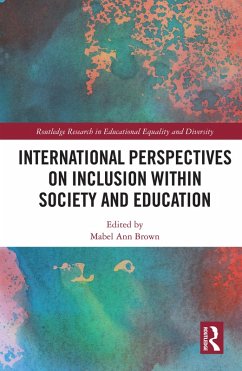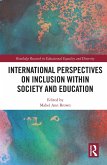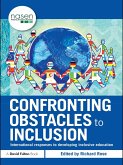With perspectives from a wide range of countries, including the USA, UK, Finland, Kosovo, Albania, Poland, Lithuania, Latvia, Hungary, the Czech Republic, Slovakia and India, this book explores how issues of inclusion are often decided by a majority for the majority, which can lead to included minorities feeling disadvantaged and paradoxically excluded. While setting up a strong case for inclusion in society and education, it considers factors such as poverty and mental health both nationally and internationally and evaluates the effectiveness of additional financial resources and educational support in creating an inclusive world.
This book will be of great interest for academics, researchers, and post graduate students in the fields of comparative education, inclusive education, sociology, political sciences and social work.
Dieser Download kann aus rechtlichen Gründen nur mit Rechnungsadresse in A, B, BG, CY, CZ, D, DK, EW, E, FIN, F, GR, HR, H, IRL, I, LT, L, LR, M, NL, PL, P, R, S, SLO, SK ausgeliefert werden.









